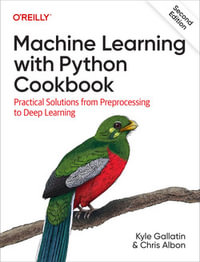Geometric and topological inference deals with the retrieval of information about a geometric object using only a finite set of possibly noisy sample points. It has connections to manifold learning and provides the mathematical and algorithmic foundations of the rapidly evolving field of topological data analysis. Building on a rigorous treatment of simplicial complexes and distance functions, this self-contained book covers key aspects of the field, from data representation and combinatorial questions to manifold reconstruction and persistent homology. It can serve as a textbook for graduate students or researchers in mathematics, computer science and engineering interested in a geometric approach to data science.
Industry Reviews
'How do you make sense of a cloud of points in high dimension? This book will tell you. Be ready for a merry ride through the awesome canyons of geometry and topology with, ever lurking in the shadows, the dreaded curse of dimensionality. Destined to become an instant classic, this book treats its reader to a gentle introduction to the subject while providing a laser-sharp focus on the hottest topics of the day. For students and researchers alike, this delightful volume will be the go-to reference in the field of geometric inference.' Bernard Chazelle, Princeton University, New Jersey
'Problems related to understanding the relationship between a space and points sampled from within it - perhaps with noise and perhaps not too densely - are important in areas ranging from data analysis, approximation theory, and graphics to differential geometry and topology. This book emphasizes the algorithmic side of the subject explaining both classical and recent ideas carefully and clearly. While not encyclopedic, it is the finest kind of exposition: masters of the field have picked and explained a number of the most important ideas, many of which are scattered in the research literature, building a vantage point from which the reader can explore the broad terrain of applications, refinements, and variations.' Shmuel Weinberger, University of Chicago
'Rooted in geometry and topology, the problem of inferring a shape from its point-samples is at the heart of many applications in science and engineering. In the past two decades, researchers, primarily in the field of computational geometry, have studied this problem from the viewpoint of designing algorithms with certified guarantees. Written by three experts in the field, this book epitomizes these research efforts. By focusing on high dimensions, the authors offer views complementary to recent learning techniques.' Tamal K. Dey, Ohio State University
'So it is fair to say that this book scores high marks on a number of counts. Not only does it address very sexy and fecund contemporary material that bridges pure and applied mathematics is a way heretofore hardly imaginable ... it is of considerable pedagogical use. The reader gets airborne quickly and gets to fly pretty high.' Michael Berg, MAA Reviews
'... it is clear that this book addresses issues that are likely to be of some interest to budding researchers. I suspect that it provides them with as accessible an introduction to this material as is currently available.' Mark Hunacek, The Mathematical Gazette
























